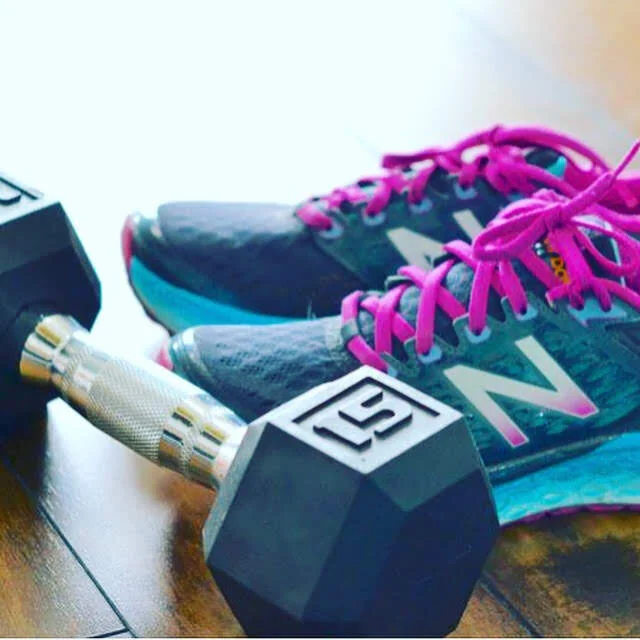Ever felt like your mind is giving up before your body does? You're not alone. While physical training is crucial, mental exercise can be the key to unlocking your full potential. Just as you can build your muscles or VO2Max, you can also develop a strong mindset. Neglecting to train your mind alongside your body could leave performance potential untapped. By recognizing the empowerment from this dual training, you can feel more in control and capable of achieving your goals.
mental training for runners
Developing Your Athletic Identity
It all begins with identity. How do you perceive yourself? I often work with clients who hesitate to call themselves athletes. These same clients participate in half marathons, maintain a consistent gym routine, and have a fitness coach (me!). The athlete label isn't reserved for the elites or those with a specific body type or performance outcome; if you engage in athletic activities, you, too, are an athlete. Embrace this identity, and you might notice subtle shifts in your behavior. When you view yourself as an athlete, you are likelier to act like one.
Exercise: Write it down: I am an athlete. Think it, say it, believe it.
Why It Matters: It's rarely about the time on the race clock or the weight on the bar; it's about how those things will make you feel. How do you want to feel? Strong? Confident? Capable? Proud of yourself?
Start with how you want to feel and craft a vision statement. A vision statement isn't only about specific goals but combines the outcomes you want to achieve with how you will feel and how it will affect your life. It's a powerful tool that can guide your actions and decisions, keeping you focused on your ultimate vision.
Vision Statement Example: "I am happy, healthy, and living pain-free. I prioritize my health and well-being. I am a strong and confident athlete. I ran a half-marathon PR and am proud of myself for my work in achieving this goal. I have strong and visible muscles that allow me to move through life easily. I have the energy and capacity to care for myself while helping others."
Take Action: Write your vision statement in the present tense and keep it close. Are your actions aligned with your ultimate vision?
Recognizing and Improving Self-Talk
How you talk to yourself matters. Do you have an inner self-critic? Of course, you do. Welcome to being human. Learning to recognize, challenge, and quiet that voice is a mindset skill that will benefit any athlete. Improving your self-talk can be a powerful source of motivation and inspiration, fueling your athletic performance.
Exercise: Write about yourself as an athlete and include how or why you started, what activities you enjoy, your training, struggles, successes, and setbacks. Be honest and unfiltered.
Then, review what you wrote and underline any objective facts (e.g., "I played sports in school"). Then, circle judgments and feelings (e.g., "I am slow" or "I am not a natural athlete"). Recognize self-limiting beliefs to begin changing them.
Reframe: Instead of "I am slow," try "I am a consistent and dedicated athlete with room for improvement."
Take Action: Spend a week noticing your self-talk. Is it helpful or discouraging? Kind or critical? Each time you catch an unhelpful thought, reframe it to strengthen your mental resilience.
Developing a Growth Mindset
A growth mindset is a game-changer. It's about believing in your ability to learn and improve, even in the face of challenges. This mindset opens up possibilities, making you feel hopeful about your athletic journey.
As an athlete, if you haven't read Carol Dweck's book Mindset: The New Psychology of Success, I highly recommend it. It explains in detail how developing a growth mindset can help you achieve more in all areas of your life.
Fixed Mindset vs. Growth Mindset Examples:
Fixed Mindset: "I am not a fast runner."
Growth Mindset: "With consistent practice and effort, I can improve my running speed over time."
Take Action:: Identify one fixed mindset belief and reframe it with a growth mindset approach.
Overcoming Race Day Anxiety and Fear
I know what you may be thinking: This is all great, but what can I do about that anxiety, fear, and worry I feel at the start line of a big race or in the middle when I start to doubt my ability to finish strong?
First, remember that fear and anxiety are not signs of weakness; they are signs that we care deeply about the outcome. Having these thoughts and worries is natural, but developing emotional regulation skills can help you feel calmer when the pressure is high.
Strategies:
Recognize and Release: Notice stress and take deep breaths to recenter. Just noticing the emotions and putting some space between feeling and reacting can be calming. I like to repeat to myself, "Relax & Release!" You can acknowledge and address emotions to prevent them from interfering with your performance.
Reframe Anxiety as Excitement: Use nervous energy to focus and perform.
Embrace Discomfort: Understand that hard work means progress. Practice gratitude to shift your mindset during challenging moments.
When it feels hard, that is usually good because:
You are doing enough work to elicit change. If it were easy, it wouldn't improve your fitness level. No one gets better by keeping it easy all the time.
It is an opportunity to practice perseverance. Every time you do hard things, you reinforce that you are capable of doing hard things. You're teaching your brain you can do this and will survive to live another day. Every time you don't give up, you become more like a person who doesn't give up.
If it is hard, that often means that there is room for improvement. Room for improvement is good as it shows you the potential you can become.
This shift in perspective can build resilience and help you feel strong and capable.
FOCUS ON GRATITUDE
Another strategy that can help when things feel hard is to switch to thinking about gratitude. Start naming everything you are grateful for, from your beating heart and capable legs to your relationships (name names!), the roof over your head, your goofy pet, or bubble baths. When I struggle, I start naming what I am grateful for until my brain can't come up with another thing. Milk it: hot showers, sleeping in, owning a dishwasher, puppy dreams, fabric softener, automatic timers on the coffee machine, my favorite song, or porta-potties (I’m serious!). Keep going. What else?
Complaining and being grateful simultaneously is impossible, so focusing on gratitude can help you overcome a tough spot. I wrote on the whiteboard in my gym, "I am grateful for every opportunity to move and strengthen my body." I glance up at it when attempting something challenging or if I am having one of those days when I "don't feel like it" to remind myself it's a privilege to be able to do this at all. (Yes, trainers have those days too.)
Find a Support Network
You don't have to do it alone. As much as we are individuals, we all have the same human brain. Building a solid support network of like-minded individuals can provide you with encouragement, motivation, and accountability. Whether joining a training group, a running club, seeking a coach, or connecting with fellow athletes online, surrounding yourself with a supportive community can fuel your personal and athletic growth.
A coach can help you challenge and counteract your inner critic, enhance your mental resilience, find your bright spots & strengths, help you see your potential, craft a plan to improve, and provide accountability.
Take Action: Join a running group, find a coach, or connect with fellow athletes online to fuel your personal and athletic growth.
Conclusion: Practice Makes PROGRESS
You get out of it what you put in. Practice makes progress. Incorporate these mental training techniques into your routine to build a strong mind. Practice some of the skills outlined in this post. What can you do daily to build a habit of a strong mind? Where do you need to improve the most? How can you incorporate some of these practices into your training? Next time, before you begin a challenging workout or event, prepare in advance how you will respond if things get hard.
Questions? I’d love to help.
Did you like this post? Do you know someone who might benefit? It helps me when you share with your friends and followers.
I am a personal trainer, running coach, and master health coach dedicated to helping runners get strong, body and mind!















The arrival of a new year often brings a specific kind of pressure to reinvent every aspect of our lives overnight. We tend to latch on to the idea that we can only improve through massive action and radical shifts in our daily routines. While the ambition is admirable, this approach is frequently a recipe for overwhelm and a quick return to old habits by mid-February.
True, lasting change rarely takes root in high stress environments. For the rest of us, the path to health lies in a more grounded and thoughtful approach that respects our unique context. By discovering a deeper motivation, committing to the bare minimum, and leading with self-compassion, we can move away from the cycle of burnout. It is about shifting our perspective from reaching a finish line to enjoying the daily journey, allowing wellness to become a part of who we are rather than just something we are trying to achieve.